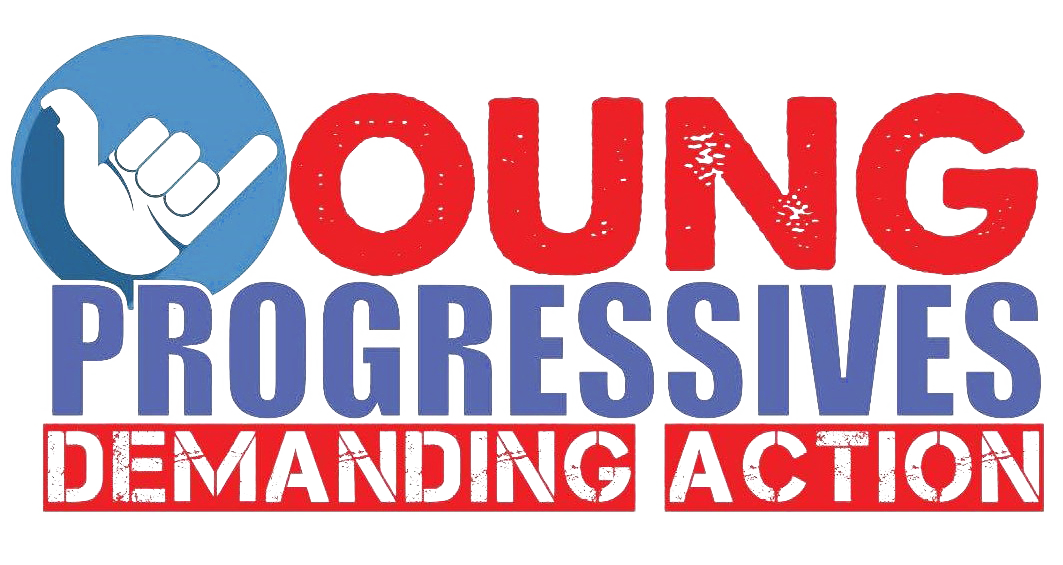YPDA joins the SAVE For All national campaign
YOU will SAVE U.S.
Strengthening America’s Values and Economy For All
The Young Progressives Demanding Action has signed on to the Strengthening America’s Values and Economy (SAVE) For All campaign. SAVE For All brings together national, state and local advocacy groups, service providers, faith-based organizations, policy experts, and labor and civil rights organizations from every state representing millions of people. We know our nation’s progress depends on ensuring that every American has equal rights and opportunities, protected and advanced by a strong and just federal government. We come together to protect important services from harmful federal budget cuts and to utilize the federal capacity to spur economic growth and progress for the benefit of all. We urge Congress to make budget decisions based on four SAVE for All principles.
Sign on to the SAVE For All campaign as either an individual or an organization here.
SAVE for All Principles
Protect low-income and vulnerable people
After a few years of progress, the decline in the poverty rate has slowed. Today, about 40 million Americans—including nearly 13 million children—live in poverty. Poverty is alarmingly and disproportionately high for communities of color, people with disabilities and women. Some 29 percent of African American children, one in four Latino children, and one in four people with disabilities are poor.
Anti-poverty programs like SNAP/food stamps, housing assistance, Social Security, SSI and low-income tax credits have moved millions of people out of poverty. Additionally, the percentage of Americans covered by health insurance through the Affordable Care Act and Medicaid has increased in recent years. However, rather than working to improve and strengthen our social safety net, lawmakers have recently targeted these programs through proposed benefit cuts and harmful structural changes.
Reducing benefits or eligibility for these and other proven anti-poverty programs will inflict harm on people and weaken our nation. Overall funding for domestic and international annually appropriated programs—including education and training, child care, housing, public health and nutrition, social services, transportation, environmental protection, and medical research, many of which are of specific importance to low-income people—has been reduced by 5.4 percent from FY 2010 through FY 2018, adjusted for inflation. In addition, efforts to deny benefits to immigrants, or to penalize them because they need help from these programs, are wrong and must stop.
Our nation’s security and strength depend on investing in and protecting our people, including public services that support them. When we reduce poverty, hunger, and ill-health, we build prosperity that advances us all. Stubbornly high levels of unmet need hold us back.
Promote job creation and strengthen the economy
Over the last few decades, wage inequality in the United States has increased significantly, making it increasingly difficult for a growing number of Americans to make ends meet. Lawmakers must do more to promote economic growth and increased job opportunities that provide decent pay and benefits. Investments in housing and infrastructure, health and care-giving, renewable energy, and other sectors, with assurances that low-income communities will benefit, will not only create jobs but strengthen the economy.
Providing funding for job training and all levels of education, from early childhood through post-secondary, as well as apprenticeships and subsidized jobs will ensure that poor and near-poor workers gain the skills and experience they need to qualify for good jobs without displacing current workers. Affordable quality child care will allow parents to get, keep, and advance at work.
Increase revenues from fair sources
Current federal revenues are inadequate to meet our nation’s needs. The recent large tax cut at the end of 2017 resulted in a windfall to wealthy individuals and to corporations which, in turn, provided huge dividends to shareholders, but none of the promised jobs. Further, the tax cut will significantly increase the national debt.
Tax breaks and loopholes favoring the rich and corporations are starving our country of the revenue needed to make the critical public investments to protect the most vulnerable in our society and ensure opportunity for everyone. What is needed is a tax system based on the principles of fairness and adequacy—a system that is more progressive and raises more revenue to meet our nation’s many needs and to promote a more equitable society. Refundable tax credits like the Earned Income Tax Credit and the Child Tax Credit should be expanded, to help working families and individuals better provide for basic needs.
Seek responsible savings from wasteful spending in the Pentagon and elsewhere
Failure to control wasteful spending makes it harder to meet our country’s needs. The defense, homeland security, and justice budgets should be subject to the same oversight and discipline as other spending. At $716 billion in FY 2019, U.S. military spending exceeds spending on all appropriated domestic programs combined. It also exceeds the defense budgets of China, Russia, Saudi Arabia, India, France, the United Kingdom, and Japan combined.
Yet, even though the Pentagon is the only federal agency that has never passed a basic financial audit, Congress has increased its budget by $133 billion over the past two years—even more of a raise than the administration requested. A study by an advisory board of corporate executives commissioned by the Pentagon identified $125 billion in potential savings over five years. In order to meet basic needs and support our men and women in uniform and veterans, Congress must eliminate wasteful spending for programs that are not needed or dangerously flawed, such as the wall across the southern U.S. border, immigrant detention camps, and new nuclear weapons.

